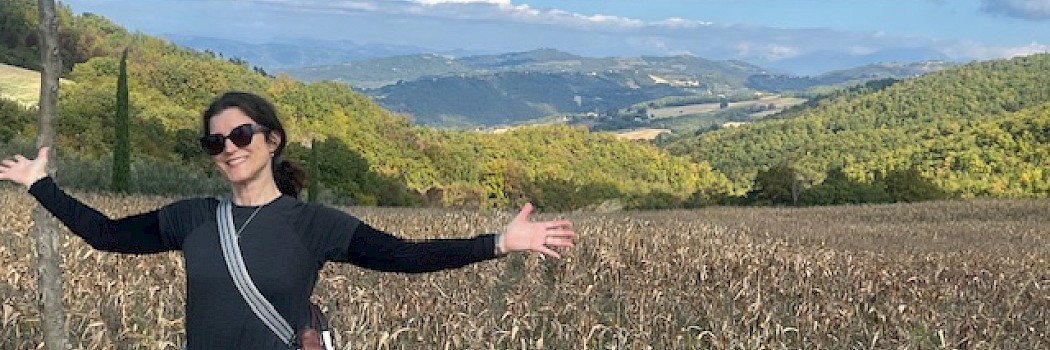Piacere, Perugia!
Written by 2025 October Scholar Gina Cantara
What a rich and delightful experience studying in Perugia has been! I purposefully did not educate myself too much about the city, the region or the history of this area before I arrived. I wanted to immerse myself, be completely open and present to welcome this truly
once in a lifetime opportunity.
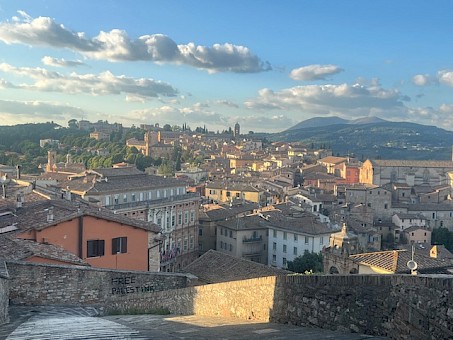
I entered the ancient Etruscan walls of Perugia in late September with a heart full of wonder and a tad bit of jet-lag. Here, I would spend one month studying Italian on a scholarship offered to me by the Seattle-Perugia Sister City Association. After studying Italian in Seattle for the past several years I decided this year was the time to get involved in more things Italian—both at home in the Pacific Northwest (PNW) and in Italy as my passion and interest in this culture continues to grow. When I became a member of the SCSPA, I had no idea that I would soon be a recipient of this esteemed annual scholarship. Each moment I gaze upon the green hills of Umbria, or sip my first morning cappuccino after waking to the sound of the nearby church bells, or amble through the narrow medieval streets of Perugia’s vibrant center, I stop and acknowledge my gratitude.
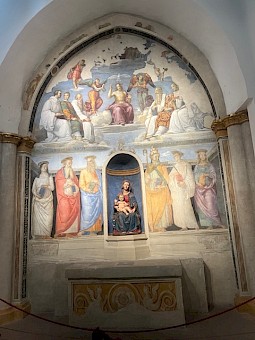
Certainly, most of my favorite things about Italy are similar to those of most stranieri (foreigners): the natural beauty of its varying landscapes, delicious food and wine, the layers of history, the art (frescos, sculptures, mosaics, music, opera, fashion...), the distinct architectural style of its cities, the cathedrals, and the warm and welcoming nature of its people. Without a doubt I hope to return again and again to this incredible country to enjoy all of these cultural facets as much as my life shall permit me to, however, my recent progress in this complicated yet poetic language has enlightened me. I now have a way to explain the core of my love for Italy.
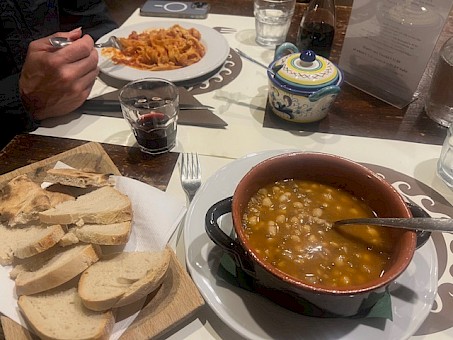
Unlike English, Italian has two words for “to know”. They are: sapere and conoscere. Understanding the distinction between these two words can be challenging at first, especially for those of us who descend from societies that value most the pursuits of information gathering and gaining technical skills, aka: “sapere.” We make a high score on a test, now we “know” the subject! We memorize facts and figures and now we “know” those things. To know things in this way is “sapere”, a cerebral conceptual type of knowledge. But what about knowing people? Places? Music? Art, food, a childhood bedtime story, a novel, a prayer, the sea, the mountains? Sure, we may learn facts and details about these things,
but “conoscere” is to feel or to sense or to be moved by something, to know something with your whole being. For example, you can memorize the recipe for tagliatelle with a wild truffle sauce (sapere), but only when you’ve tasted it, smelled it and savored it do you really know it. (conoscere). You can learn to play the cello by knowing how the strings work and reading a piece of music (sapere), but only when you’ve felt the vibrations in your body of a bow moving across the strings and when time stops even for a second as the haunting melancholy tones ring through your ear drums will you know the cello. (conoscere) Do you see where I am going with this?
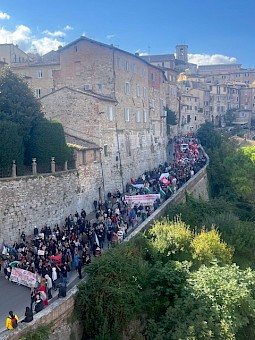
The distinction between these two ultra common words in the Italian language is to me the very reason I am drawn to this magnificent culture. The people live each day here with their mind, body, heart and soul. Italians are expressive, fiercely loving and always generously offering up their friendship, food and wine to those who want to “conoscere”. They value humanity and connection, striving to maintain parts of their culture long steeped in tradition and spirituality. These words, "Sapere" and "Conoscere," reflect a culture that believes there is room in our experiences for different ways of “knowing." Simply put—we can know with our brains or with our hearts. An old Native American proverb that mentions this distinction goes like this: The longest walk one will ever take is the one from the head to the heart. Both conceptual understanding and emotional experiences are important in order for a human to live a full and robust life.
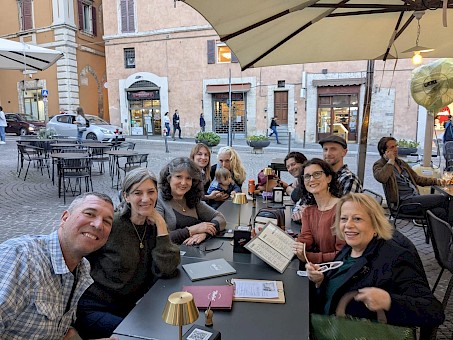
I feel so fortunate to have begun new friendships here with not only local residents, but students of different ages from all over the world. L’Universita di Stranieri is a melting pot of individuals, couples and families striving to learn the Italian language. During my time studying here, I never felt alone in my challenges or triumphs. Smiles, hugs, even some swearing sessions (in Italian, of course)- it was always—understood that we are all in this journey together. Thank you to the SPSCA, L’Universita di Stranieri, ALL of my teachers—here and in the US- all of my new friends and acquaintances, Percorso Italiano, and Perugia—è stato un piacere di conoscervi.
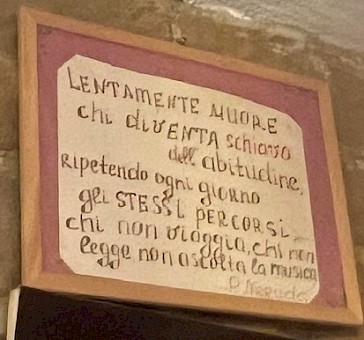
The translation: "Slowly dies he who becomes slave of habit, every day the steel path, he who does not travel, does not read, does not listen to music."

